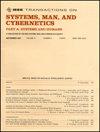Adaptive Tracking Control of FIR Systems Under Binary-Valued Observations and Recursive Projection Identification
IEEE Transactions on Systems Man and Cybernetics Part A-Systems and Humans
Pub Date : 2021-09-01
DOI:10.1109/TSMC.2019.2946596
引用次数: 8
Abstract
In this article, adaptive tracking control of finite impulse response (FIR) systems is studied with binary-valued measurements. An adaptive control strategy is proposed based on an online identification algorithm. First, the designed control inputs are proved to be bounded and satisfy a persistent excitation (PE) condition under the assumption of periodic and PE target signals, which ensures the convergence of the identification algorithm. Second, the convergence rate of the identification algorithm is proved to be $O(1/t)$ and it depends on the true parameter instead of a priori information of the parameter, which is more intuitive. Due to the convergence and the convergence rate of the identification algorithm, we finally prove that the adaptive tracking control is asymptotically optimal and the tracking speed is faster than the previous control algorithm. The simulations are given to validate the developed results in this article.二值观测下FIR系统自适应跟踪控制及递推投影辨识
本文研究了基于二值测量的有限脉冲响应系统的自适应跟踪控制。提出了一种基于在线辨识算法的自适应控制策略。首先,在目标信号周期和PE假设下,证明了所设计的控制输入是有界的,满足持续激励条件,保证了识别算法的收敛性;其次,证明了识别算法的收敛速度为$O(1/t)$,它依赖于真实参数而不是参数的先验信息,更加直观。由于辨识算法的收敛性和收敛速度,我们最终证明了自适应跟踪控制是渐近最优的,并且跟踪速度比以前的控制算法快。通过仿真验证了本文的研究结果。
本文章由计算机程序翻译,如有差异,请以英文原文为准。
求助全文
约1分钟内获得全文
求助全文
来源期刊
自引率
0.00%
发文量
1
审稿时长
6.0 months
期刊介绍:
The scope of the IEEE Transactions on Systems, Man, and Cybernetics: Systems includes the fields of systems engineering. It includes issue formulation, analysis and modeling, decision making, and issue interpretation for any of the systems engineering lifecycle phases associated with the definition, development, and deployment of large systems. In addition, it includes systems management, systems engineering processes, and a variety of systems engineering methods such as optimization, modeling and simulation.

 求助内容:
求助内容: 应助结果提醒方式:
应助结果提醒方式:


